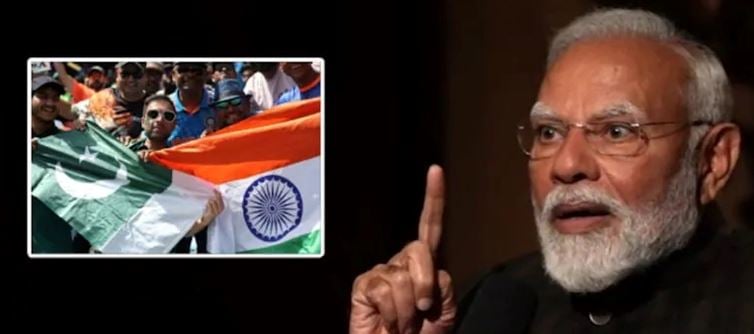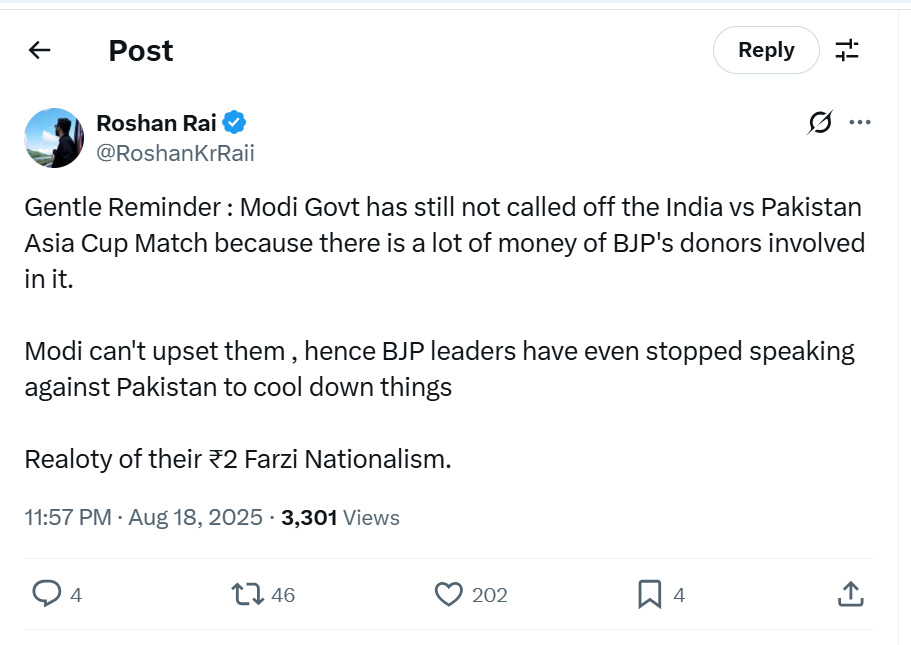
Interestingly, political observers have noticed a sudden silence among bjp leaders who otherwise never miss an opportunity to issue strong statements against Pakistan. The usual aggressive tone has mellowed down, almost as if the leadership is treading carefully to ensure nothing jeopardizes the match or the revenues linked to it. This calculated restraint suggests that financial interests are being prioritized over political posturing and nationalist rhetoric.
 For the public, the entire scenario once again highlights the complex intersection of politics, business, and sports in India. While cricket fans eagerly await the contest, the underlying reality remains that decisions around such matches are rarely just about the game. They are deeply tied to the economics of broadcasting rights, sponsorship deals, and political goodwill with wealthy backers. In this case, it appears that the Modi government is walking a fine line — keeping its political base satisfied while ensuring that the financial machinery behind the sport continues to roll smoothly.
For the public, the entire scenario once again highlights the complex intersection of politics, business, and sports in India. While cricket fans eagerly await the contest, the underlying reality remains that decisions around such matches are rarely just about the game. They are deeply tied to the economics of broadcasting rights, sponsorship deals, and political goodwill with wealthy backers. In this case, it appears that the Modi government is walking a fine line — keeping its political base satisfied while ensuring that the financial machinery behind the sport continues to roll smoothly.




 click and follow Indiaherald WhatsApp channel
click and follow Indiaherald WhatsApp channel